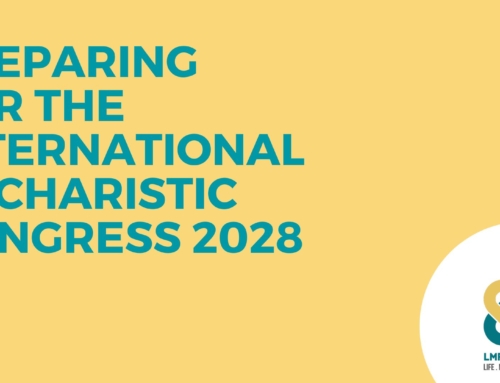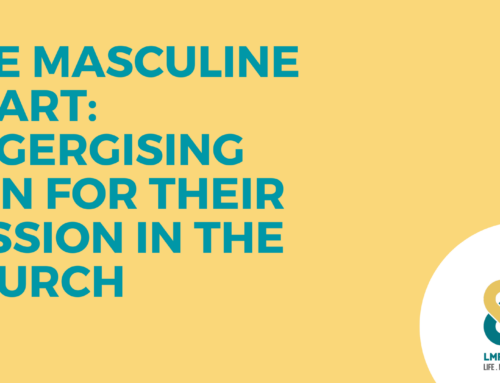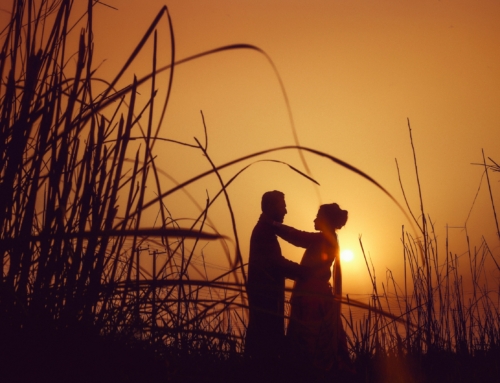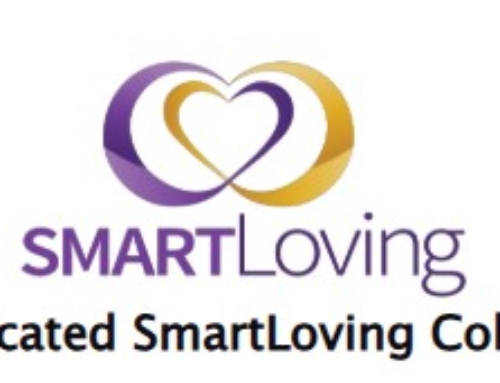Like all areas of society and Church, everything we do has a history, a current context and future goal. Marriage preparation is no different and it is helpful to take stock of where we need to go by looking at each.
Where did we come from – a brief history
Up until the 1950’s marriage preparation was almost exclusively the domain of the celebrant and focussed on Sacramental theology and spiritual preparation. There was little understanding of the science of relationships and the culture was by and large supportive of marriage and family.
Seismic cultural shifts emerged in the 1960s and the culture swung from supporting to questioning and ultimately undermining marriage. In parallel, a new emphasis on the role of the laity in the life of the Church post Vatican II and the concurrent emergence of movements like World Wide Marriage Encounter and Teams birthed a cohort of couple educators who introduced peer witnessing to marriage preparation.
These factors led not only to an increased need for more comprehensive marriage preparation but also the capability to provide it. Marriage preparation courses became more sophisticated in content with partnerships between lay couples and clergy.
Over time, as the relationship sciences added new insights and the theology of marriage became more developed, a heightened need for professionally delivered courses emerged. The increasingly busy and under resourced parish priest was no longer equipped to deal with the expanding complexities of modern relationship formation.
More demanding training requirements gradually displaced both priests and volunteer couple educators with employed facilitators who conducted courses predominantly in diocesan social welfare organisations. Driven by the logic of economies of scale and skill, the role of the clergy in marriage preparation unwittingly became an ‘add on’ and the sacramental witness of couples rarer.
The current landscape
Participation in church life is falling at all levels, and marriage is no different. Non-Church weddings represent over 70% of all weddings in Australia. Catholic weddings have more than halved from over 20,000/year two decades ago to under 10,000 in 2016. Many parishes across the country can go several years between weddings and for many of the weddings that do occur in a parish, often the couple neither resides there nor has any connection to a parish community.
In terms of marriage preparation, the adoption of secular relationship curriculums means that teaching content is dominated by a ‘divorce prevention’ agenda rather than sacramental formation. Most of the courses are disconnected from the local parish community and they are facilitated by neither a married couple nor a priest.
The question we must ask ourselves is whether this is ideal, desirable or acceptable? We would argue it is none of these and we need to ‘reimagine and remaster’ our approach to marriage preparation.
The Why and the How marriage preparation
It is stating the obvious, but it is worth reminding ourselves that the Church exists to evangelise; it’s our Why. It’s not a side project; it’s our mission, our core purpose. The primary goal of Catholic marriage preparation therefore, must also be to evangelise; to enable our engaged to develop a deeper, more intimate relationship with God. Helping couples to live happy vibrant, joy-filled marriages, and preventing divorce is a noble and necessary endeavour, but should never take priority over our mission to evangelise.
When a couple presents to the Catholic church for marriage, we are presented with a natural ‘teachable moment’. While they are all at different starting points, it is always a prime evangelisation opportunity. In this teachable moment, our goal is to:
- Deepen the couple’s faith and prepare them spiritually for the Sacrament of Matrimony. The fact that a couple might not be religiously inclined should give us all the more reason to engage with them in this, not less!
- Warmly invite any non-Catholic fiancés to become part of our faith family.
- Motivate the couple to embrace Matrimony as a vocational calling lived out among a community.
With a clear goal in mind, a clear Why, we then need to look at How we achieve this.
Presently, the primary How of marriage preparation is to teach and thus the perennial debate around the curriculum of our courses: do we have too much of a focus on the human relational psychology, and not enough on the spirituality / sacramental theology or vice-a-versa? It’s a common debate but a false choice. Both have an important role and both are necessary to achieve our goal of evangelisation.
More importantly however is that these two essential categories of catechesis need to be intimately integrated and not taught as two different ideas. In our experience, that integration is not only possible, it makes each element more effective.
However, there is a missing critical ingredient in the How of most courses today. We all know faith is as much ‘caught’ as it is ‘taught’ and that catechesis alone is not enough. There has been gradual movement to recognise this, but Pope Francis’ call to focus on ‘accompaniment’ has brought this missing element into sharp relief.
Accompaniment is more than reaching out to those in distress. We would argue it applies as much as walking with people in the process of positive growth as it does to those struggling in dysfunction trying to find their way to truth. It is a critical component of effective evangelisation.
Present marriage preparation processes by and large completely miss this. Educators can talk chapter and verse about course content, teaching pedagogies, format choices, curriculum, etc…. but it is hard to find any elements of an accompaniment approach; of walking with the couple, witnessing to and praying with them, and being involved in their life beyond the 8 hours or less they spend attending a course.
The necessary remastering of marriage preparation needs to include a parallel ‘accompaniment’ dimension. Consistent with this thinking, we note that following the two recent synods on the family, there have been strong calls to approach marriage preparation in a ‘catechumenate model’ – to think of it not as an event (as in a course that takes place on a day or weekend) but a period of formation. Similar to the RCIA, a marriage catechumenate is a process of formation that includes catechesis, evangelisation and accompaniment, where long-term community relationships and fellowship are formed.
Remastering marriage preparation – the future
Our proposition is that the future must be rebuilt around four key elements:
- Involves married couples to accompanying the engaged but not necessarily having to teach the courses
- Parish-based but centrally-enabled to make this practically possible
- An integration of the best of relationship science and contemporary theology
- Conducted over a period of time and not as a one or two-day ‘intensive’
With regard to achieving accompaniment in marriage preparation, we propose as a very practical step that every engaged couple be paired with a Sponsor Couple from their local parish. This couple would take on the responsibility to interact with the engaged as a marital witness and support throughout the engagement period and into their newlywed years.
In terms of parish delivery, with the curriculum demands of marriage education higher than ever, and the capacity of our parishes arguably weaker than in any time in recent history, it is perhaps difficult to see how we can practically provide marriage preparation from within the parish. However, technology has changed the education landscape dramatically. The enabling power of new technologies now allows us to put world class teaching materials into parish halls and the living rooms of parishioners. It allows to capture the teaching of some of the best marriage educators and theologians in the world and integrate their insights into one package.
When we started in this work twenty-five years ago the power of desktop publishing put high-quality printing within the physical and financial reach of anyone with basic design skills. It was transformative. Now it’s the same with video and interactive digital learning platforms. If fact, we believe these delivery models are superior to live presenters and we are moving all the SmartLoving courses into this approach.
So, the need to centralise because of economies of scale and skill no longer hold; we can provide superior learning experiences into the home of any parishioner using a model of centrally-enabled, locally-provided marriage formation in a way that was not practical even five years ago. In our own organisation we now support parishes delivering marriage preparation around the world on demand 24 hours a day with superior outcomes compared to our traditional live delivery formats.
Importantly, local delivery naturally aligns with the accompaniment model; if we ‘get’ the importance of the accompaniment dimension, centrally-enabled, locally-provided marriage preparation is the only practical approach. It also removes the need for compact, intensive courses so that formation can take place over several months where integration into daily life is possible.
If all this looks a bit hard, take a look at the SmartLoving Engaged Online course. It is a remastering along the principals outlined above with impressive results. It’s not just a concept; it’s a true ‘renaissance’ of marriage formation happening right now across the world.
Visit smartloving.org





